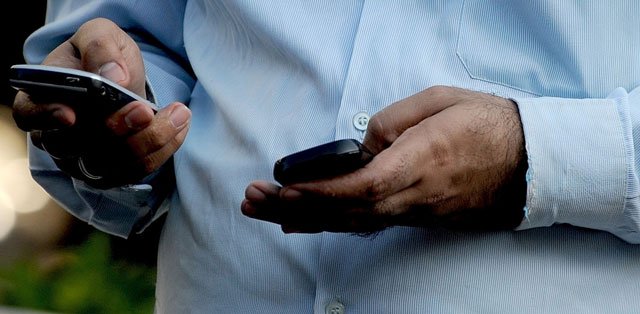
The study conducted by World Bank’s Global Findex Database, which provides in-depth data on how individuals save, borrow, make payments and manage risks, revealed that an average three per cent of people in South Asia used a mobile phone to send or receive money in 2014.
Pakistan’s broadband subscriptions cross 25 million mark
 SOURCE: GLOBAL FINDEX DATABASE
SOURCE: GLOBAL FINDEX DATABASE“While there are still gaps between how often men and women use these services, Pakistan leads the region with 9% of men and 2% of women moving money on their mobiles,” the findings of the research read.
The Global Findex is the world’s most comprehensive database on financial inclusion that consistently measures people’s use of financial services across countries and over time.
Roadmap to realise Pakistan’s digital potential
With 9% of men and 2% of women as users, Pakistan leads South Asia in mobile money: https://t.co/rDGnoRNBoV pic.twitter.com/v0VvaeIt7G
— World Bank Data (@worldbankdata) February 8, 2016
Surprisingly, India ranks second in the list of mobile money with three per cent of its male while just one per cent of its female population making use of their cellular phones for carrying out financial transactions.
The Global Findex indicators are drawn from survey data collected by Gallup, Inc over the 2014 calendar year, covering around 150,000 adults in more than 140 economies and representing about 97% of the world’s population. The set of indicators will be collected again in 2017.
The research questionnaire was piloted in multiple countries, using focus groups, cognitive interviews, and field testing.
Pakistan’s banking system: Soundness indicators ‘remain adequate’, says IMF
Further, the indicators outlined in the study will allow national and international policy makers, researchers, businesses and development practitioners to track how the use of financial services has changed over time.
Besides, the research database can also be used to identify gaps in access to the formal financial system and design policies to expand financial inclusion.

















COMMENTS (10)
Comments are moderated and generally will be posted if they are on-topic and not abusive.
For more information, please see our Comments FAQ